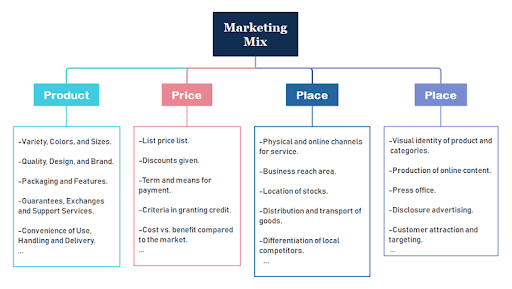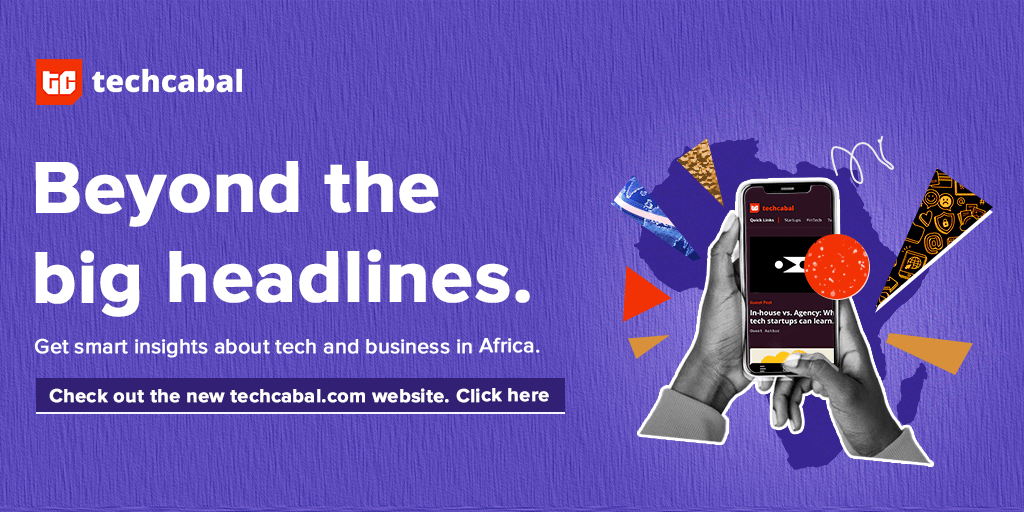
01 || March || 2023
View in BrowserBrought to you by

#Issue 21
How to become a product marketer
Greetings, ET readers 🖖🏾
A couple of weeks ago, I made a promise to a user who reached out on Twitter asking us for an #EnteringTech🚀 edition on product marketing.
Well, we set out to work, and this week’s edition features a brilliant product marketer who’s worked in tech and other sectors.
P.S If you’re looking to link up with a product marketer, this thread is full of brilliant product marketers across Africa.
by Timi Odueso & Pamela Tetteh.

Tech trivia questions
Here is some basic trivia that may stump you.
- What is “laser” an abbreviation for?
- What is the full meaning of “wi-fi”?
Answers are at the bottom of this newsletter.

What is product marketing?
Have you ever seen tweets that ask you to like or retweet because their customers may be on your timeline? Or maybe you’ve received emails that share testimonials of people who used a product and had their lives changed?
That’s product marketing in a nutshell— selling your market. Product marketers are the 2023 equivalent of door-to-door salespeople or the folks who give you samples so you can buy their products.
The point is, product marketers are microphones who tell the audience about a company’s product. They take whatever product or service their company is selling and create videos, articles, graphics and even radio jingles that will sell the product.
Behind every single ad you’ve seen on Instagram and every review you’ve read that’s made you buy something is a product marketer at work!
They’re also called digital marketers, content marketers or even product marketing managers.

How product marketing works
The crux of product marketing—as with everyday marketing—involves four Ps: product, price, place and promotion.
Our guest today, Oluwatofunmi Alo, adds an extra P—peace—but we’ll let her explain that herself.

- The first P, “product” means that marketers—or product marketers here—should be able to define the product and understand it. If you can’t break down what your product does and why it’s important to your users, how will you convince them to buy [into] it?
- “Price” has to do with pricing. Product marketers should be able to understand how much their target audience will pay for a product, and how much competitors are charging. For example, iPhones are super-expensive and less versatile than high-end Androids, but many still buy them as a status symbol— plus, they’re nice to hold. As a product marker, you’ll need to understand how price will affect your customers’/audiences’ decision, and how to sell them on it.
- Next is “place” which deals with where your product should be available. If it’s a physical product, do you want it in supermarkets or tuck shops? If it’s digital, will you sell more units with an app or a simple website—or an Excel sheet like Nigeria’s electioneering agency? Place has to do with positioning your product on the right platforms so it can be discovered.
- Finally, “promotion” involves advertising and media strategy. This is where social media marketing, radio jingles, and Google Ads come in. Product marketers lead the advertising and media strategy for products, using social and traditional media to promote products.
To achieve all this, product marketers work with other teams including customer success, product management, engineering and sales.
So yeah, every time you see a social media post advertising a product, or an Instagram ad, it’s a product marketer hard at work.

The tools of a product marketer
Laptops, phones, and consistent internet connection are friends of product marketers.
They work on different platforms, using laptops to manage analytic tools, meetings and emails; and phones to write copy and monitor social media.

Hear it from a product marketer
Today’s techie is a product marketer with a communications background whose fifth P is “peace.
Oluwatofunmi is a product and growth marketer with over 6 years of experience helping brands craft effective marketing strategies in order to achieve business goals. She has worked with brands like Tix Africa, Vendease, Nestcoin and UBA Foundation. She currently leads the marketing and communications team at Spleet.
Q. What do product marketers do?
Essentially, product marketers engage in various marketing activities in order to push a product. Oftentimes, especially in the African tech industry where we can’t afford to hire multiple people to market a suite of products, you find product marketers working across markets or a range of products.
In their day-to-day, product marketers work with the sales, product, engineering and customer success teams to create marketing strategies. They come up with a bunch of ideas to push products online and offline. They engage in email marketing, social content, writing and media production, offline strategy, and distribution strategies for their audience.
Q: So is it different from marketing, sales or even business development?
I would say it’s cross-functional with these other roles.
Sometimes, it depends on the kind of products that you’re working on. If it’s B2B, oftentimes you find that the marketing and sales team are separated. The sales team will usually work on the actual pitches to clients while the marketing team works to build brand equity, recognition and awareness.
Q. Ah, got it. So how difficult is it to market products?
I wouldn’t say that product marketing is very difficult.
You do have to be intentional as a product marketer. It helps if you have a psychology background or are interested in psychology; you’ll better understand why people buy the things they buy, why they shop where they shop, and why they choose the services they use.
You also have to be ready to unlearn everything that you know about marketing. I have a communications background and in university, I learnt how critical the four Ps of marketing—product, price, place and promotion—are. But things don’t always go that way. There are so many times when we see viral products with high price points or features that don’t make sense, but people still buy them. You have to tap into people’s feelings of FOMO, their sense of achievement etc.
So I wouldn’t say it’s difficult; there’s just a lot of learning and unlearning to do, even if you have a marketing education background.
Q. Sounds intense. How did you get into product marketing then?
Honestly, I thought that I would end up working in PR. As I said, I have a comms background and my major was in public relations and advertising so I’m not far off from what I started.
My first job was an internship for an entertainment PR company and what I did there was majorly media relations. Then I worked at a fashion label before moving to an advertising agency where I was an account manager for a while. I’d say that’s really when my product marketing journey really began. My day-to-day job was to create content for social media. And then I was a digital account manager for some interesting brands. I did it for a year and a half.
From there, I had to take courses and get certifications to fully prepare me for product marketing jobs.
Q. Looks like you’ve done well for yourself so far. What skills would you say have been critical to your success?
For hard skills, I’d say content marketing is one of the things you should have in your marketing skill stack. Everything is content. People don’t want salesy stuff. People just want to experience your product through the content you publish. Then there’s writing because you’ll do a lot of that in writing copy, product releases or even newsletters. Finally, media production, email marketing, social media management and analytics have been critical to my growth. You’ll also need to learn SEO, and develop a love for analytics, tracking metrics and social listening.
For soft skills, I’d say maintaining interpersonal relationships is first. You can’t work in isolation, you’ll need your team—from product to engineering to customer success. You need to work closely with your PM—ask to listen in on user interviews and read their surveys so you can borrow the words and phrases customers use in your marketing copy. You need to work with customer success – ask them what their FAQs are so you can include them in your content strategy. You also need to be able to take feedback and criticism. Also, adaptability and fast thinking have helped me keep up with the demands of the job.
I also took a lot of courses and certifications to grow in my roles.
Courses are at the bottom of this edition.
Q. But for newbies who want to get into product marketing and don’t already have jobs, how can they find jobs?
Personally, one thing I’ve seen that works with my friends is just cold pitching new founders to offer your skills set. I’ve seen people send their portfolios and get hired.
I’d also advise them to join communities like Tech Marketers Hub, Non-Tech in Tech and Tech Marketers Support Initiative where they’ll find job openings, and mentorship opportunities and just grow with like-minded people.
Q. What misconceptions do people have about product marketing?
People think we’re all fun guys that don’t get any work done. They think we’re just TikToks and glamour. They don’t see the Monday morning trackers when your metrics have dipped or the little (and big) failures.
People don’t see the marketing campaigns you spend a lot of time on because you’re so sure it’ll go viral, and then you end up getting only 16 views or the low open rates we struggle with. So yeah, I’d say that’s a pretty big misconception.
Have more questions for Tofunmi? You can reach out to her on Twitter at @oluwatofunmii_ or email her at oluwatofunmialo@gmail.com.
My Startup In 60 Seconds

In the next epiosde of My Startup In 60 Seconds, Emeka Nwachinemere tells us why he’s building Kitovu, an agritech that helps over 16,000 small farmers across Nigeria make operational decisions. Watch the episode!

You can learn product marketing too
Here are courses you can take if you’re interested in product marketing.
- Price: Free ($25 for certificate)
- Duration: 1 hour
- Tools Needed: Phone + internet access
- Level: Beginner
- Price: Free
- Duration: Varies
- Tools Needed: Phone + internet access
- Level: Beginner-Intermediate
- Price: $1 for first 7 days
- Duration: 33 hours
- Tools Needed: Laptop+ internet access
- Level: Intermediate
- Price: $110
- Duration: 23 hours
- Tools Needed: Laptop+ internet access
- Level: Beginner–Intermediate
- Price: $149
- Duration: 3 hours
- Tools Needed: Laptop+ internet access
- Level: Beginner

Ask a techie
Q. I got a certification in project management during my NYSC and I’m thinking of transitioning into product management. I’m confused honestly. I’ve done a few projects and volunteered, and I’m wondering if I should transition or stay my project management course. Plus, if I choose project management, how do I get a community of project managers?
We think you can be both. While project managers focus on projects and product managers set the vision for products, both roles require a similar skill set. Project managers are doers and product managers are strategic thinkers so if you do want to transition, you’ll need to weigh the pros and the cons. Would you be more comfortable developing roadmaps and working across teams—which is something you do in project management? Would you be more comfortable leading direction as opposed to getting your hands dirty? There are numerous opportunities for product and project management across the world, so ultimately, the decision lies with you.
Community-wise, check out Non-Tech in Tech and ConTech Africa, both have project managers within their communities.
Q. Can you get a good job in DevOps without an undergraduate degree?
Go to school!!! Lmao, on a more serious note though, you can! Learning DevOps itself requires courses, certifications and knowhow, the same thing they teach in schools. So while you may not need a traditional undergraduate degree to get a job in DevOps, you will need to read about DevOps, practise it, get certified, and showcase your skills before you can get hired.
That’s all we can take this week. Have any questions about tech in Africa? Ask away and we’ll find answers for you.👇🏾

Tech trivia answers
- Yep, the word “laser” is an abbreviation for Light Amplification by Stimulated Emission of Radiation!
- If you said wireless fidelity, then you’re wrong! That’s a common misconception. Wi-Fi was coined by a marketing firm as a catchy name for the technology and was not originally meant as a short form for wireless fidelity.
Sign up for TC Daily

Get the most comprehensive insights and stories about Africa’s tech and business ecosystem. TC Daily goes out every week at 7 AM (WAT). Sign up here

Opportunities
- The Jasiri Talent Investor Programme is looking for highly driven individuals with a history of achievement and/or entrepreneurial action who aspire to launch a high-growth venture. Apply by April 23.
- The Growth Africa Accelerator Programme is calling for applications from ambitious and committed entrepreneurs from Kenya, Uganda, Ethiopia, Zambia or Ghana with the potential to grow and create impact through their businesses. Apply now.

Jobs
- TechCabal – Associate Editor, Senior Reporter, Reporter – Africa
- Zikoko – Managing Editor – Lagos, Nigeria (Remote possible)
- Big Cabal Media – Commercial Director, Head of Growth – Africa
- Big Cabal Media – Software Developer, Senior Product Manager, Sales Associate, Senior Sales Manager, Executive Assistant – Lagos, Nigeria (Hybrid)
- PayDay – Chief Financial Officer, Finance Lead – Africa (Remote)
- ICF – Communications and Engagement Lead, Multicultural Comms Specialist – Kitui County, Kenya
- Fido – Customer Support Team Lead, Content Creative Manager, Marketing Manager, IOS Developer, Financial Analyst – Ghana, South Africa
- Brass – Sales Manager, Product Specialist, Brand Designer, Motion Designer, Product Designer, Business Operations Associate, Head of Business Banking – Lagos, Nigeria.
- AfricaCheck – Copy Editor – Johannesburg, South Africa
- Nomba – Frontend Engineer, Senior Backend Engineer, Senior Financial Analyst – Lagos, Nigeria
- Vendease – Product Owner, Technical Product Manager – Lagos, Nigeria
There are more jobs on TechCabal’s job board. If you have job opportunities to share, submit them at bit.ly/tcxjobs.
Disclaimer: TechCabal is not affiliated with or associated with jobs and opportunities listed on all its job boards and newsletters. All applicants bear the responsibility of researching the roles and companies they apply to.

No longer want to receive these emails? Unsubscribe here





















